In this guide we've taken a look at a few widely accepted driving habits to give some clear cut advice on whether they're right or wrong.
Whether it's what the best fuel for your car is, to fuel saving tips and even widely-held road safety beliefs, there are many instances where what seems 'right' isn't actually factual.
Read on to find out if you're falling foul of any of these and can help improve your driving by changing a few age-old habits.
1. Brimming your tank with fuel

The majority of motorists seem to do this, but it's not the best way to fill up.
You should fill your car until the nozzle clicks once and avoid ‘topping up’ beyond that point.
Doing so leaves no room for fuel vapour to expand inside the tank, and can damage your car’s vapour collection system.
This consists of a charcoal filter that could be flooded – and damaged – by excess fuel.
A replacement isn’t cheap, and inefficient fuel vapour collection is also bad news for the environment.
2. Driving with your hands at ‘ten and two’

Driving with your hands in the ‘ten and two’ positions (if you picture the steering wheel as a clock face) is not the current advice of driving schools – nor has it been for many years.
Keeping your hands at ‘nine and three’ (or quarter to three on a clock face) is generally considered more comfortable and better for driving.
And, with pretty much every modern car having power steering, the extra leverage gained by placing your hands high on the wheel is no longer necessary.
There’s also an argument that the ‘ten and two’ position could put your arms in the path of the inflating airbag if an accident occurs, but this hasn't been proven in any study of real significance.
3. Paying extra for premium petrol
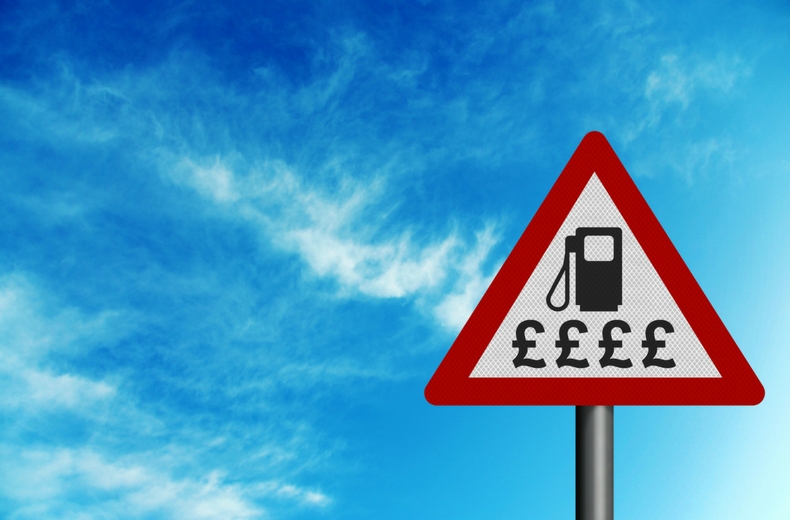
Most petrol stations offer a choice between normal 95 RON (95 octane) petrol and 'super unleaded', which can vary from 97 to 100 octane. Some also sell high-performance ‘premium’ diesel.
These typically cost around 10p extra per litre – around £4.00-£6.00 more per tank – or more, but are only worth having if you drive a car that is designed to benefit from the fuel.
Cars with highly tuned engines (everything from hot hatchbacks to sports cars) can give a tangible benefit to performance, driveability and even fuel economy when running on super unleaded.
Check the handbook or the inside of the filler flap to see what type of fuel is recommended (it may say ‘unleaded 95’, for example). Some more exotic cars should generally only be run on super unleaded, but others 'recommend' upgrading for the benefits rather than demand it.
4. Slamming on the brakes if you have a tyre blowout
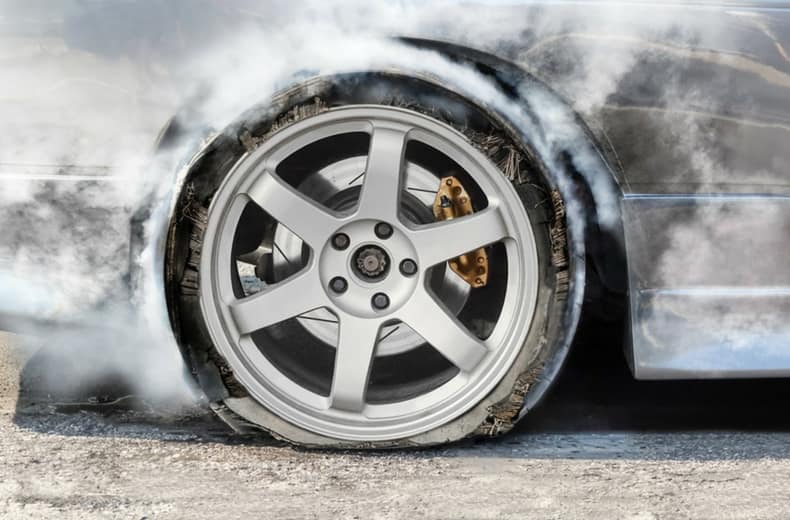
This is an easy mistake to make as in most emergency situations, it’s advisable to brake as hard as it's safe to do so.
This will more often than not, help you avoid a potential hazard while the anti-lock braking (ABS) will prevent skidding, so the car can come safely to a stop.
This isn’t the case, however, if you have a sudden tyre blowout.
In this scenario, slamming your foot on the brake pedal will further destabilise the car, potentially causing it to fishtail or spin.
Instead, keep your foot on the accelerator (counterintuitive as that may feel) and slowly ease off the gas to bring the car to a steady, controlled halt.
5. Avoiding using air-con to save fuel

When it's unbearably hot outside (a rare occurrence in the UK) many people will rely on rolling down their windows instead of using the air con, in an effort to conserve fuel.
Many may continue running with their windows down at higher speeds, thinking that's more fuel efficient than running the A/C.
If it's hot, both switching on the air conditioning or rolling down your windows (because of additional drag) can affect your car’s fuel economy by as much as 20%.
Generally speaking, keeping your windows up and using the air-con at speeds above 45mph is the most efficient way to keep your cabin cool. Below that speed, think about rolling your windows down.
That’s the conclusion of a 2004 study by General Motors and engineering standards organisation SAE, which compared fuel use in a saloon and SUV at speeds of 31mph, 50mph and 68mph.
Modern air-conditioning systems are considerably more efficient than they used to be. It's also essential to run your air-con to prevent your windows from misting up in wet weather, too.
It's also worth remembering that aircon will stop working if not used regularly, resulting in a potentially expensive repair, so it is a good idea to run it fairly regularly.
6. Changing your engine oil every year
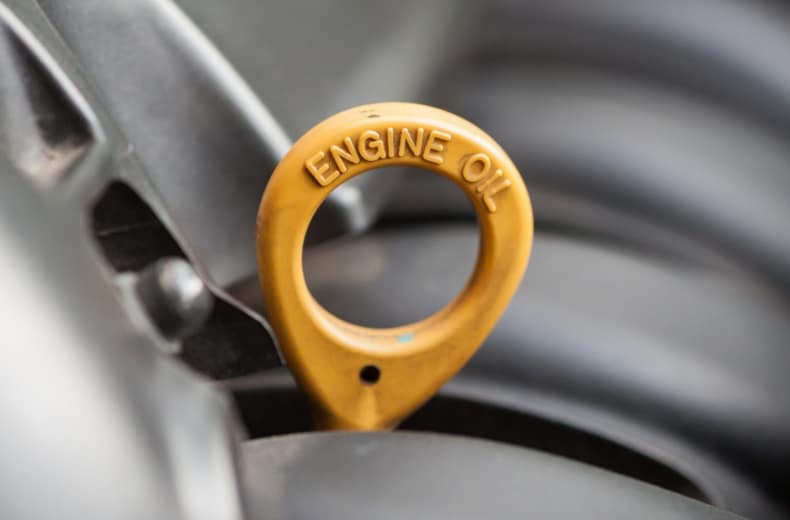
There are no hard and fast rules here, but improvements in engine and oil technology mean service intervals for cars have become less frequent over time.
The most stressed, high-performance engines could need fresh oil as frequently, or in some cases even more so, than every 5,000 miles – but some modern cars can cover several times that distance.
Much depends on your car and how you drive it; motorway miles are much easier on an engine than stop-start city traffic.
The best advice, therefore, is to refer to your handbook and follow the manufacturer’s recommendations.
Remember, if your car is still within its manufacturer warranty, you must service it as per the carmaker's recommendation. Failure to do so may void your car's warranty.
7. Waiting for your car to 'warm up' before driving
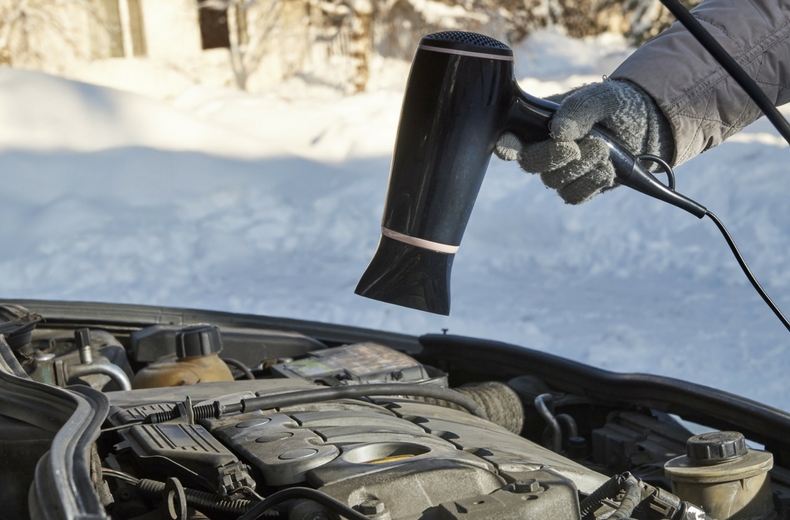
This is another case of fact becoming myth as car technology has improved.
Modern fuel injection and engine management systems regulate the warm-up process to improve efficiency and reduce wear.
Many experienced mechanics still recommend running your car for a few seconds before driving off to allow the vital fluids to circulate in the engine and gearbox.
But leaving your car running for several minutes is just wasting both fuel and time.
8. Using your phone if the car is stationary
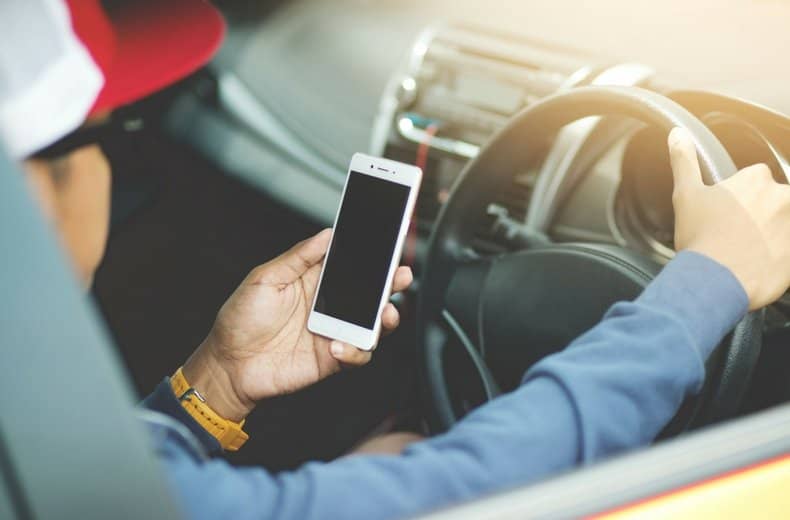
This largely depends on whether you have the engine switched on and are considered in charge of the vehicle.
If so, you are breaking the law and risking six penalty points plus a £200 fine.
That said, you can’t physically interact with your phone - whether it be to check a message or even change your music - even if your car’s stop-start system has cut the engine.
The only ways to legally use a mobile phone inside the car are: a) via a hands-free Bluetooth connection or b) while parked with the engine off.
9. Believing there is a 'minimum speed limit' on motorways

Some people believe the minimum speed limit on motorways is 40mph, when actually there is no minimum speed limit - legally speaking.
While we would never advise driving disproportionately slower to the traffic around you on a motorway, it is worth noting some smart motorways, such as the M25, may even reduce speed limits to just 20mph in the event of an accident or to ease severe congestion.
In normal conditions, however, driving too slowly may be as dangerous as driving too fast due to the speed difference of approaching traffic.
And, if caught driving too slowly on a motorway, unnecessarily, you risk being pulled over for driving without due consideration, which is where the myth of an imposed minimum speed limit probably came from.
10. Shunning winter tyres
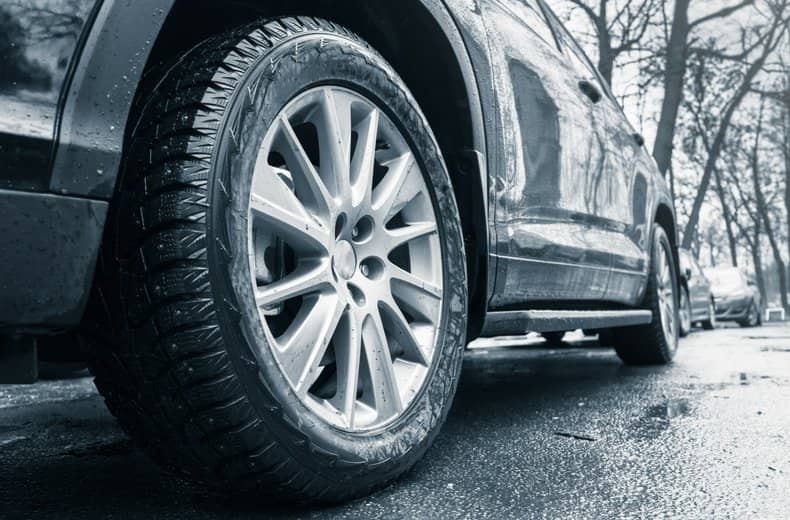
Winter tyres are a legal requirement in some European countries during the colder months, but they remain very much a niche product in the UK.
Contrary to popular belief, though, winter tyres are not just for use on snow and ice.
They’re actually more effective – and thus safer – in all road conditions when temperatures drop below 7deg C. That takes into account a significant chunk of the year across most of the UK.
The secret is a softer rubber compound, along with tread covered in tiny, water-dispersing channels called sipes.
If you can afford the initial outlay for a set of winter tyres, they’re a worthwhile investment on safety and performance alone.
Plus the increased life span of both sets of tyres being used for half the year each, will almost balance out the initial costs - just make sure you have somewhere to store them when you're not using them.
If you can't afford another set of tyres, consider renewing your next set with 'all-season' tyres designed for both winter and summer use.
Read more in our should I buy winter tyres? Guide.
11. Avoiding buying a rear-wheel-drive car on the basis that they are 'more dangerous'
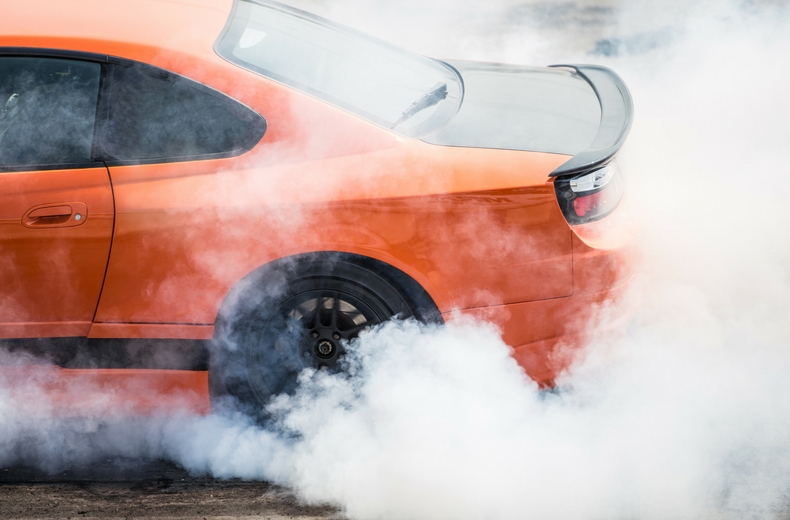
This arguably used to be the case, when the less predictable nature of rear-drive handling wasn’t reined in by electronic safety systems.
In extremis, a rear-wheel-drive car can skid sideways (oversteer), as opposed to most front-driven cars, which tend to run wide (understeer).
Understeer is easier to manage, particularly for inexperienced drivers, so many consider front-wheel-drive cars inherently safer.
However, modern traction control and electronic stability programmes intervene rapidly to prevent oversteer, meaning neither drive type is more dangerous in normal conditions.
Unless you are driving and cornering at unsafe speeds, having the correct tyres and driving style for the conditions is more important than which driven wheels your car has.

RAC sale – up to 33% off*
• Roadside cover from £5.29 a month†
• We get to most breakdowns in 60 mins or less
• Our patrols fix 4/5 breakdowns on the spot



